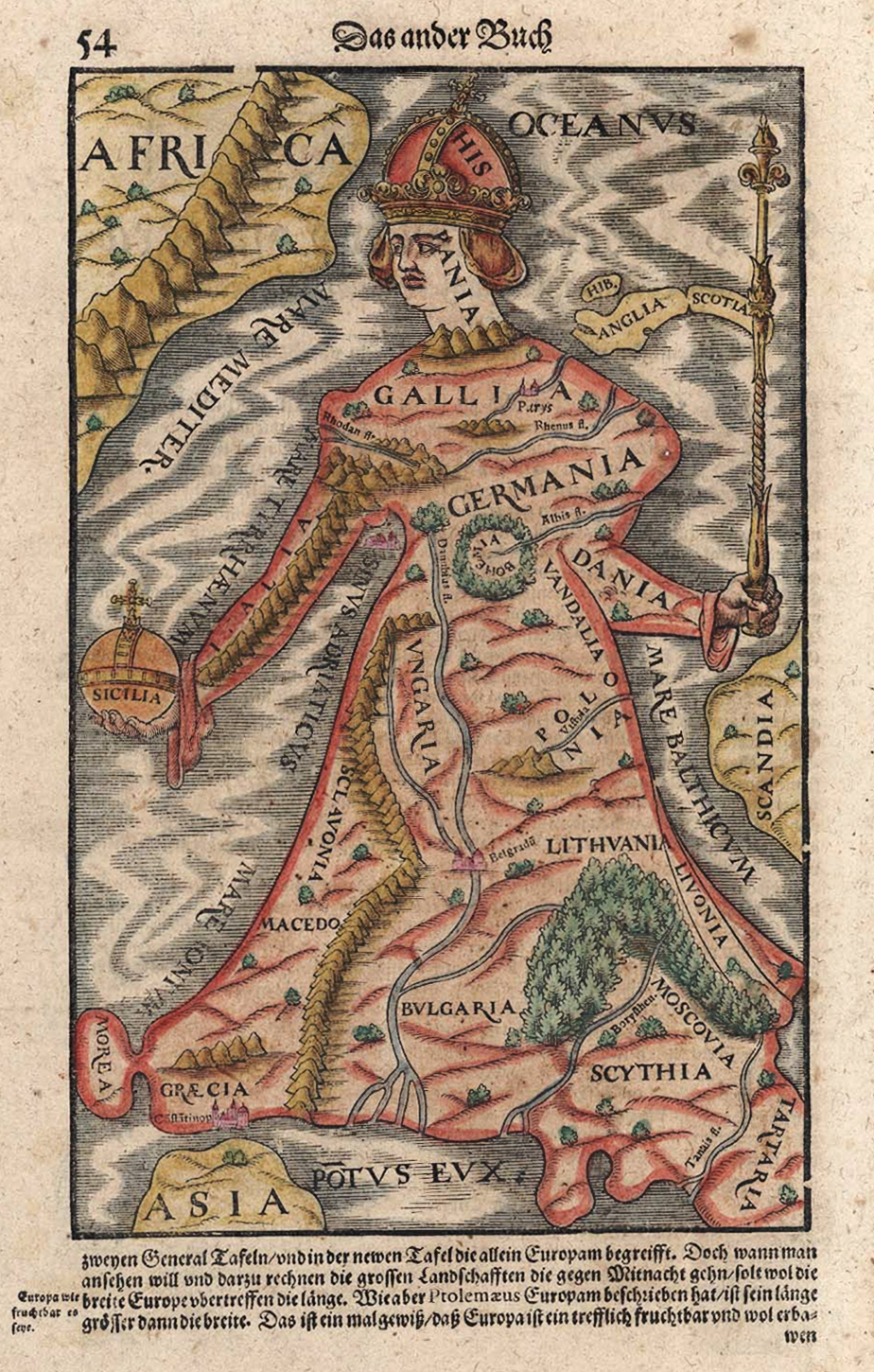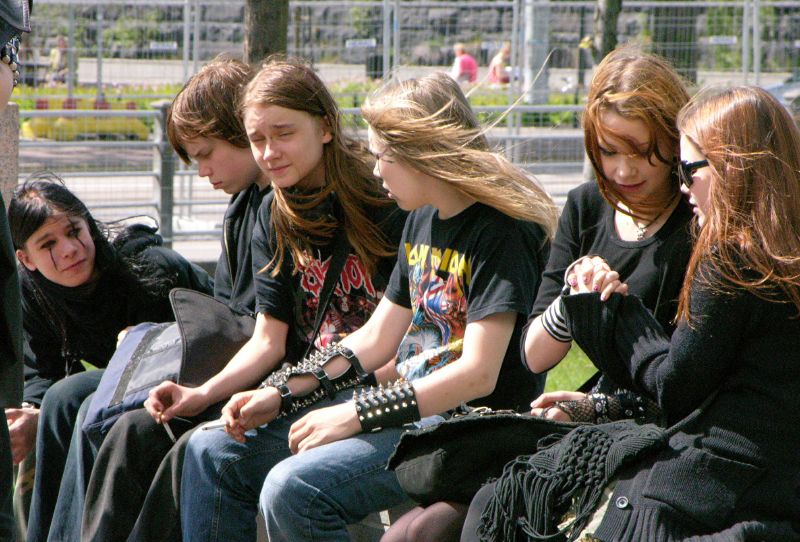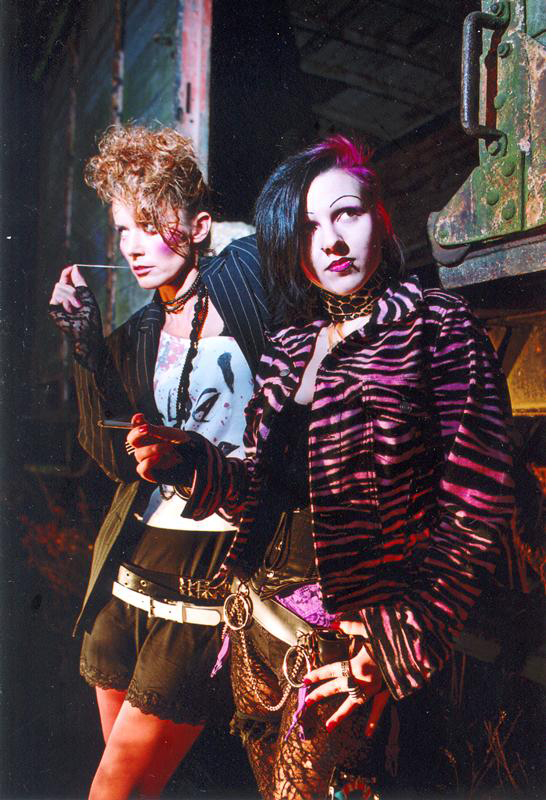|
NWoBHM
The new wave of British heavy metal (often abbreviated as NWOBHM) was a nationwide musical movement that began in England in the mid-1970s and achieved international attention by the early 1980s. Editor Alan Lewis coined the term for an article by Geoff Barton in a May 1979 issue of the British music newspaper '' Sounds'' to describe the emergence of heavy metal bands in the mid-to-late 1970s, as punk rock declined amid the dominance of new wave music. Although encompassing diverse styles inherited from rock music, the music of the NWOBHM is best remembered for infusing earlier heavy metal with the intensity of punk rock to produce fast and aggressive songs. The DIY attitude of the NWOBHM bands led to raw-sounding, self-produced recordings and a proliferation of independent record labels. Song lyrics were usually about escapist themes, such as mythology, fantasy, horror, and the rock 'n' roll lifestyle. The NWOBHM began as an underground phenomenon growing in parallel to ... [...More Info...] [...Related Items...] OR: [Wikipedia] [Google] [Baidu] |
Saxon (band)
Saxon are an English heavy metal music, heavy metal band formed in Barnsley in 1975. As leaders of the new wave of British heavy metal (NWOBHM), they had eight UK Top 40 albums during the 1980s including four UK Top 10 albums and two Top 5 albums. They had numerous hit singles on the UK Singles Chart and experienced success all over Europe, South America and Japan, as well as in the United States and Canada. During the 1980s, Saxon established themselves among Europe's most successful metal acts. The band tours regularly and have sold more than 23 million records worldwide. History Formation and early years (1975–1979) Saxon came together from components of two Yorkshire bands: S.O.B. and Coast. The former was initially called Blue Condition, forming in 1970 with Graham Oliver on guitar, Steve Dawson, Steve "Dobby" Dawson on Bass guitar, bass, and John Walker on drums. Their style was blues rock and hard rock. Shifting the line-up, Blue Condition changed their name to S. ... [...More Info...] [...Related Items...] OR: [Wikipedia] [Google] [Baidu] |
Alan Lewis (music Journalist)
Alan Lewis (1945 – 23 June 2021) was a British music journalist and editor. He began his career on local newspapers, before starting work as production editor at ''Melody Maker'' in 1969. From there, he helped found ''Black Music'' magazine in 1973,Allan Jones, "Obituaries: Alan Lewis", ''Uncut'', No.292, September 2021, p.110 and in the late 1970s became the editor of '' Sounds'' magazine, where he encouraged such writers as Jon Savage, Sandy Robertson, Sylvie Simmons, Vivien Goldman and Geoff Barton. Phil Alexander, "RIP Alan Lewis: Kerrang! founder and British publishing legend", ''Kerrang!'', 24 June 2021 Retrieved 13 July 2021 In 1979, he was responsible for coining the term " |
Iron Maiden
Iron Maiden are an English Heavy metal music, heavy metal band formed in Leyton, East London, in 1975 by bassist and primary songwriter Steve Harris (musician), Steve Harris. Although fluid in the early years of the band, the line-up for most of the band's history has consisted of Harris, lead vocalist Bruce Dickinson, drummer Nicko McBrain, and guitarists Dave Murray (musician), Dave Murray, Adrian Smith (musician), Adrian Smith and Janick Gers. As pioneers of the new wave of British heavy metal movement, Iron Maiden released a series of UK and US Platinum and Gold albums, including 1980's Iron Maiden (album), debut album, 1981's ''Killers (Iron Maiden album), Killers'', and 1982's ''The Number of the Beast (album), The Number of the Beast'' – its first album with Dickinson, who in 1981 replaced Paul Di'Anno as lead singer. The addition of Dickinson was a turning point in their career, establishing them as one of heavy metal's most important bands. ''The Number of the Beast'' ... [...More Info...] [...Related Items...] OR: [Wikipedia] [Google] [Baidu] |
Continental Europe
Continental Europe or mainland Europe is the contiguous mainland of Europe, excluding its surrounding islands. It can also be referred to ambiguously as the European continent, – which can conversely mean the whole of Europe – and, by some, simply as the Continent. When Eurasia is regarded as a single continent, Europe is treated both as a continent and Continent#Subcontinents, subcontinent. Usage The continental territory of the historical Carolingian Empire was one of the many old cultural concepts used for mainland Europe. This was consciously invoked in the 1950s as one of the basis for the prospective European integration (see also multi-speed Europe) The most common definition of mainland Europe excludes these Island#Continental islands, continental islands: the list of islands of Greece, Greek islands, Cyprus, Malta, Sicily, Sardinia, Corsica, the Balearic Islands, Great Britain and Ireland and surrounding islands, Novaya Zemlya and the Nordic archipelago, as well ... [...More Info...] [...Related Items...] OR: [Wikipedia] [Google] [Baidu] |
Heavy Metal Subculture
Fans of heavy metal music, commonly referred to as "Metalheads", have created their own subculture that encompasses more than just appreciation of the style of music. Fans affirm their membership in the subculture or scene by attending metal concerts (an activity seen as central to the subculture), buying albums, growing their hair long (although some metalheads do wear their hair short; one very famous example is late 70s to 80s-era Rob Halford), wearing jackets or vests often made of denim and leather decorated with band patches and metal studs, and by contributing to metal publications since the early 1980s. The metal scene, like the rock scene in general, is associated with alcohol (especially beer), tobacco and drug use, as well as riding motorcycles and having many tattoos. While there are songs that celebrate drinking, smoking, drug use, having tattoos and partying, there are also many songs that warn about the dangers of those activities. The metal fan base was traditionall ... [...More Info...] [...Related Items...] OR: [Wikipedia] [Google] [Baidu] |
Neal Kay
Neal Kay (born 10 February 1950) is a former London-based disc jockey, who was an important factor in the rise of the new wave of British heavy metal (NWOBHM), along with Tommy Vance, in the late 1970s and early 1980s. Career Neal Kay has always been a DJ. He started out in the local youth club in the mid-sixties, and by the end of the 60s was a well established London-based night club DJ, working fully 6 nights a week. In 1969 he went to West Berlin with his future first wife, a dancer, to guest DJ in two clubs a night from dusk until dawn. His main club in Berlin was the Playboy Club. He also guested from time to time with the British Army. In the period between 1975 and 1980, he managed a rock club called The Bandwagon Heavy Metal Soundhouse, originally resident in the back-room of the Prince of Wales public house in Kingsbury, North London; this back-room venue was known as 'The Bandwagon'. With great help from the music papers of the day, '' Sounds'' and ''Melody Maker'', ... [...More Info...] [...Related Items...] OR: [Wikipedia] [Google] [Baidu] |
Underground Culture
Underground culture, or simply underground, is a term to describe various alternative cultures which either consider themselves different from the mainstream of society and culture, or are considered so by others. The word "underground" is used because there is a history of resistance movements under harsh regimes where the term ''underground'' was employed to refer to the necessary secrecy of the resisters. For example, the Underground Railroad was a network of clandestine routes by which African slaves in the 19th-century United States attempted to escape to freedom. The phrase "underground railroad" was resurrected and applied in the 1960s to the extensive network of draft counseling groups and houses used to help Vietnam War-era draft dodgers escape to Canada, and was also applied in the 1970s to the clandestine movement of people and goods by the American Indian Movement in and out of occupied Native American reservation lands. (See also: Wounded Knee Occupation). Th ... [...More Info...] [...Related Items...] OR: [Wikipedia] [Google] [Baidu] |
Escapism
Escapism is mental diversion from unpleasant aspects of daily life, typically through activities involving imagination or entertainment. Escapism also may be used to occupy one's self away from persistent feelings of depression or general sadness. Perceptions Entire industries have sprung up to foster a growing tendency of people to remove themselves from the rigors of daily life – especially into the digital world. Many activities that are normal parts of a healthy existence (e.g., eating, sleeping, exercise, sexual activity) can also become avenues of escapism when taken to extremes or out of proper context; and as a result the word "escapism" often carries a negative connotation, suggesting that escapists are unhappy, with an inability or unwillingness to connect meaningfully with the world and to take necessary action. Indeed, the ''Oxford English Dictionary'' defined escapism as "The tendency to seek, or the practice of seeking, distraction from what normally has to b ... [...More Info...] [...Related Items...] OR: [Wikipedia] [Google] [Baidu] |
Independent Record Label
An independent record label (or indie label) is a record label that operates without the funding or distribution of major record labels; they are a type of small and medium-sized enterprise, small- to medium-sized enterprise, or SME. The labels and artists are often represented by trade associations in their country or region, which in turn are represented by the international trade body, the Worldwide Independent Network (WIN). Many of the labels started as producers and distributors of specific genres of music, such as jazz music, or represent something new and non-mainstream, such as Elvis Presley in the early days. Indies release Rock music, rock, soul music, soul, R&B, jazz, blues, gospel music, gospel, reggae, Hip hop music, hip hop, and world music. Music appearing on indie labels is often referred to as indie music, or more specifically by genre, such as indie hip-hop. Overview Independent record labels are small Company, companies that produce and distribute Album, rec ... [...More Info...] [...Related Items...] OR: [Wikipedia] [Google] [Baidu] |
DIY Ethic
"Do it yourself" ("DIY") is the method of building, modifying, or repairing things by oneself without the direct aid of professionals or certified experts. Academic research has described DIY as behaviors where "individuals use raw and semi-raw materials and parts to produce, transform, or reconstruct material possessions, including those drawn from the natural environment (e.g., landscaping)". DIY behavior can be triggered by various motivations previously categorized as marketplace motivations (economic benefits, lack of product availability, lack of product quality, need for customization), and identity enhancement ( craftsmanship, empowerment, community seeking, uniqueness). The term "do-it-yourself" has been associated with consumers since at least 1912 primarily in the domain of home improvement and maintenance activities. The phrase "do it yourself" had come into common usage (in standard English) by the 1950s, in reference to the emergence of a trend of people undert ... [...More Info...] [...Related Items...] OR: [Wikipedia] [Google] [Baidu] |
New Wave Music
New wave is a music genre that encompasses pop music, pop-oriented styles from the 1970s through the 1980s. It is considered a lighter and more melodic "broadening of Punk subculture, punk culture". It was originally used as a catch-all for the various styles of music that emerged after punk rock. Later, critical consensus favored "new wave" as an umbrella term involving many contemporary popular music styles, including synth-pop, alternative dance and post-punk. The main new wave movement coincided with late 1970s punk and continued into the early 1980s. The common characteristics of new wave music include a humorous or quirky pop approach, angular guitar riffs, jerky rhythms, the use of electronics, and a distinctive visual style in fashion. In the early 1980s, virtually every new pop and rock act – and particularly those that employed synthesizers – were tagged as "new wave" in the United States. Although new wave shares punk's do-it-yourself philosophy, the musician ... [...More Info...] [...Related Items...] OR: [Wikipedia] [Google] [Baidu] |








